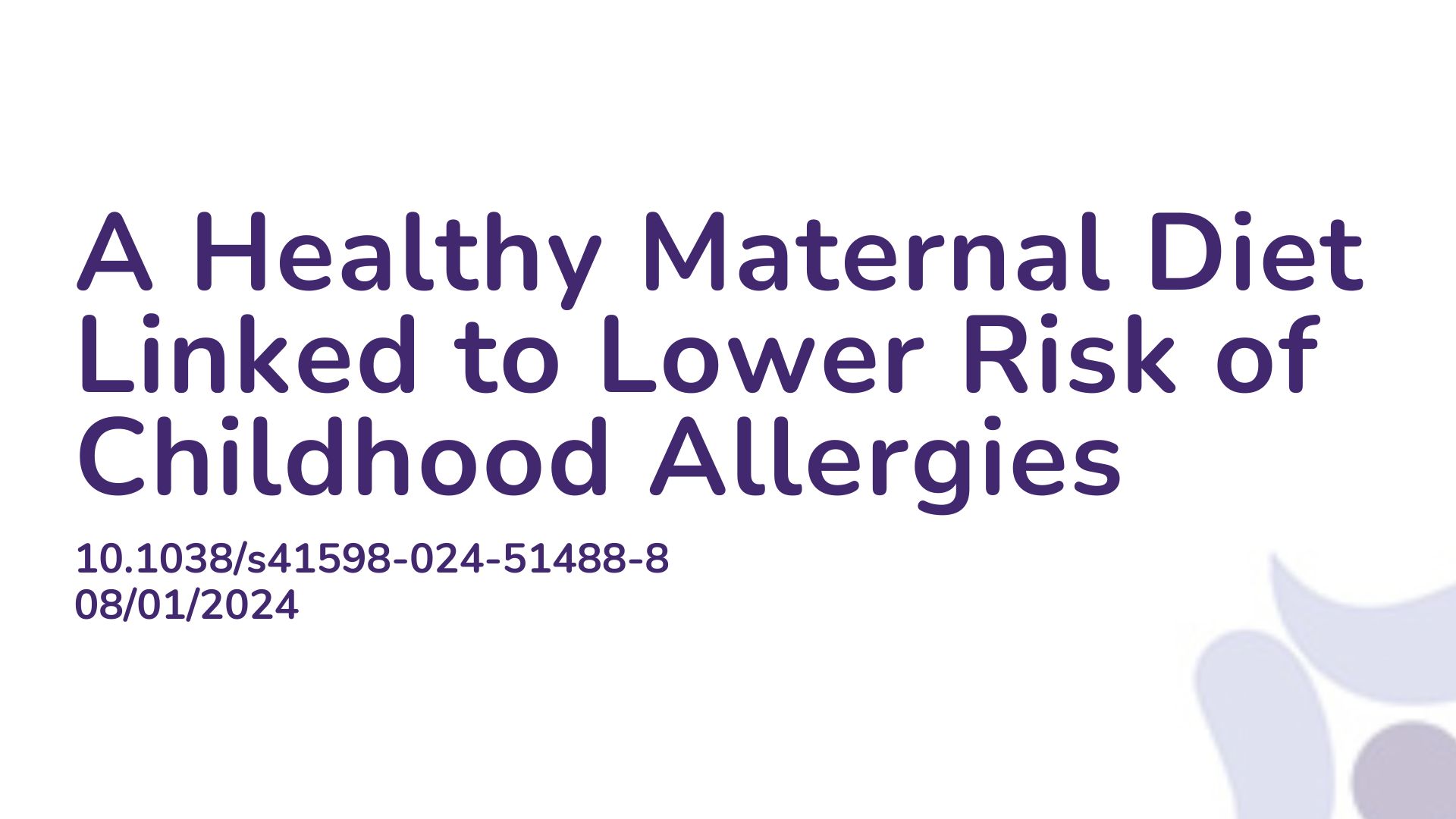Summary:
Allergic conditions in children are common and include eczema, asthma, food allergies, and allergic rhinitis. Food allergies affect about 5% of young children, with 42% experiencing severe reactions at least once in their lifetime. In Europe, approximately 15% of children have asthma, 16% have allergic rhinitis, and 34% have eczema. Research suggests that exclusive breastfeeding for the first six months and a diet rich in vegetables, fruits, grains, and fish oil may reduce the risk of allergic diseases. Healthy dietary habits during pregnancy could also help prevent allergic conditions in infants. This study examined the relationship between maternal dietary patterns during pregnancy and allergic conditions in children under one year of age. The authors also compared the intake of macro- and micronutrients between mothers of healthy children and those whose children have allergy symptoms. The study included 244 participants (122 mothers of allergic children and 122 healthy controls), and data on their diets were collected using a food frequency questionnaire to assess dietary intake during pregnancy. The results indicated that a diet rich in nuts, vegetables, fruits, and protein was associated with a lower incidence of childhood allergies, suggesting that a healthy maternal diet during pregnancy may help reduce the risk of allergies in children.
Abstract:
Allergic diseases are prevalent chronic conditions among children and can lead to significant health and economic issues. It is hypothesized that healthy and high quality diet during pregnancy can prevent the onset of allergic diseases in offspring. This study aimed to investigate the potential relationship between major dietary patterns during pregnancy and allergies in children under one year of age. This case–control study was conducted involving 244 participants (122 mothers of allergic children and 122 healthy controls) who visited pediatricians and allergy outpatient clinics in Khuzestan Province, Iran, between June 2022 and March 2023. Demographic information was recorded using a socio-demographic questionnaire. A food frequency questionnaire was used to identify the foods consumed during pregnancy. Major dietary patterns were extracted using principal component analysis, and the potential relationship between these patterns and childhood allergies was investigated using multivariable logistic regression models. The crude odds ratio (OR) analysis showed that the fourth quartile of “Nut, vegetables, fruits, and protein” dietary pattern was associated with lower occurrence of childhood allergies (OR: 0.214, 95% CI = 0.068–0.679; P trend = 0.211). After adjusting for cofactors in Model 3, this association was still observed in the fourth quartile (OR = 0.108, 95% CI = 0.019–0.613; P trend, 0.001). However, no significant association was observed between “Carbohydrate and cereals” and “Salty” dietary patterns and childhood allergies. The study findings suggest that a maternal dietary pattern rich in nuts, vegetables, and fruits during pregnancy may reduce the risk of allergic diseases in offspring.
Article Publication Date: 08/01/2024
DOI: 10.1038/s41598-024-51488-8



